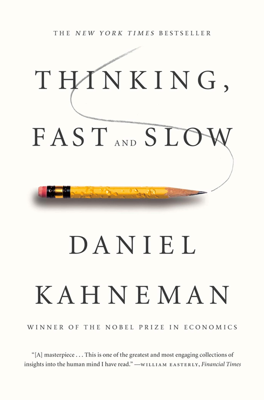Life as a Story
The Remembering Self and Duration Neglect in Life Stories
- Life Viewed as a Narrative: The chapter begins with a reflection on witnessing an opera where the climax focuses on emotionally significant yet fleeting moments, emphasizing how stories impact our perception of life's importance. It illustrates that we often prioritize memorable and crucial events (such as a happy or tragic end to a life) over the total duration or mundane aspects of life. This narrative focus exemplifies how the "remembering self" rather than the "experiencing self" shapes our evaluation of life’s events, leading to duration neglect where the length of an experience doesn’t impact its perceived value as much as the emotional peak or the end.
Experiential vs. Remembered Happiness
- Impact of Memory on Evaluation: Through a hypothetical character study of 'Jen,' it was shown that doubling the length of an otherwise happy life doesn’t alter judgments about the desirability of that life or the total happiness experienced. This finding supports that people often evaluate lives based on a prototypical slice of time, influenced heavily by memorable peaks and ending experiences, rather than the cumulative sum of all moments.
Decision Utility in Life Choices
- Concept of Additive Years: Exploring further, the studies reveal that adding moderately happy years to an extremely happy life can paradoxically lower the perceived overall happiness, indicating that an "average" level of happiness is substituted for a cumulative sum when making judgments. This substitution effect demonstrates that memorable impacts and significant changes in narrative arcs heavily influence our perception of a life or period, even if it appears counterintuitive logically.
Influence of the Remembering Self on Future Choices
- Vacation Experiences and Intentions: The influence of the remembering self extends to decisions about repeating experiences. For instance, students' overall evaluation of their vacation, influenced by the ending and memorable moments, dictated their future intentions more strongly than a diary of daily experiences. This showcases how significant moments and the final impression weigh more in decision-making than the everyday details or average experiences.
Perceptions and Decisions without Memory
- Hypothetical Amnesic Scenarios: A thought experiment invited contemplation about a vacation that leaves no memories, revealing how the prospect of not remembering reduces the perceived value of the experience. This scenario highlights how much the anticipation of future memories shapes the choices of the experiencing self, directing preferences and actions towards what can be remembered, not merely experienced.
Implications for Understanding Happiness and Memory
- Separation of Experiencing and Remembering Self: The chapter concludes by differentiating between the experiencing self, who lives in the present, and the remembering self, who keeps score and makes decisions. This distinction underscores how our future choices and narrative understanding of life are deeply influenced by how events are remembered and interpreted, often neglecting the real-time duration and cumulative happiness in favor of memorable highs, shifts, and conclusions.
